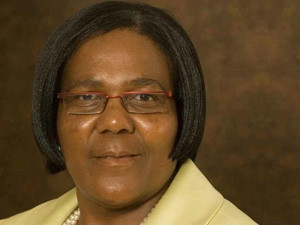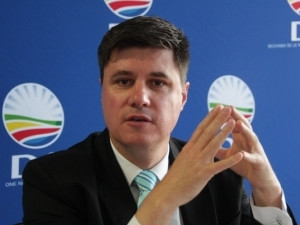
Now that president Jacob Zuma has inked the so-called e-toll Bill, paving the way for the project to kick off in Gauteng, the system is expected to be implemented soon.
This will be a welcome move, as it will show up inherent flaws with the project, including the fact that collection and enforcement of the fees will be impossible, opponents of the e-tolling system argue. Yesterday evening, the Presidency said Zuma had signed the Transport Laws and Related Matters Amendment Bill into law.
The final step in the legislative process, before e-tolls become fully operational, is transport minister Dipuo Peters to proclaim when the law comes into effect, and publish the final tariffs and regulations for a minimum period of 14 days before e-tolls start.
The South African National Roads Agency (Sanral) has indicated a number of times that it is ready to go ahead with the implementation of the project.
However, those opposed to the Gauteng Freeway Improvement Project argue that it will fail, because the courts, which will be used in a bid to collect outstanding fees, are already overburdened, and the system relies on data contained in the polluted electronic National Traffic Information System (eNatis) database.
Meanwhile, the project is being scrutinised by the Supreme Court of Appeals (SCA), which yesterday reserved judgement. The Opposition to Urban Tolling Alliance (Outa) is challenging the legality of the system.
Not waiting
Department of Transport (DOT) spokesperson Tiyani Rikhotso says the department will not wait for the ruling before going ahead with the legislative process. "The court process has no bearing whatsoever into what we are doing."

Outa appeared in the SCA, in Bloemfontein, yesterday, to appeal High Court judge Louis Vorster's December judgement. Heads of arguments from all parties were heard, after which judgement was reserved.
"It is a separate issue, which should never be conflicted with the process of implementing e-tolling. There is no interdict on government which says we cannot go ahead with implementation while the SCA process is going ahead," says Rikhotso.
Rikhotso was unable to give a specific date for the likely implementation of e-tolls, but says it is clear the department will not need a lot of time to complete the legislative process and it wants to implement the project as soon as possible.
Won't work
Outa chairman Wayne Duvenage says Zuma's signing of the Bill comes as an extreme surprise. "We thought that [Zuma] would consider the comment made by the Freedom Front Plus (FF+) that [the Bill was classified incorrectly as a Section 75 Bill], wait for the court outcome, and so forth," he says. "So, if you read between the lines, you ask yourself, why would he force this matter into being right now?"
Duvenage notes government is obviously forging ahead regardless of the court ruling and there is not much more Outa can do. He maintains the final and ultimate test is the actual workability and enforceability of e-tolling.

"The laws are only as good as they are governable and tolling fails around the world where it doesn't have the support of society. And this one doesn't, because it is too cumbersome, too expensive and too much money is going offshore to offshore companies. So now it is a matter of go ahead and see what happens."
Duvenage points out only about 30% of residents need to boycott the system for it to fail. He says there is no way to predict what the SCA ruling will be as it could go either way.
"There is a possibility that on technical reasons they could ignore the unlawful process of poor public engagement, because the Cabinet has ruled and Sanral is just putting in place what Cabinet says, irrational as it might be."
Chairman of the non-profit Justice Project of SA, Howard Dembovsky, argues that it will be impossible to prosecute offenders as the courts will simply be overwhelmed. He says he will be one of the first to be prosecuted as he will be made an example of.
While Dembovsky does not encourage non-compliance with laws, he adds he has a right and a responsibility to oppose what is unjust. Government is calling people's bluff, he says. "What you tend to forget is that we are not playing poker here."
Government should go ahead with implementing e-tolls as it will collapse, says Dembovsky. "Let's see what happens."
Dembovsky adds that many road users will take to the back-roads and among these will be the drivers of heavy goods vehicles. "When - not if - massacres similar to the Fields Hill crash, which claimed 23 lives happen, Sanral and the Department of Transport will have more blood on their hands. I just hope I and my family members don't become one of those 'statistics'."
Insulting
Democratic Alliance (DA) shadow minister of transport, Ian Ollis, says Zuma's signing of the e-tolls Bill on the day the e-tolling case is before the SCA is an insult to South Africans.
"The president has had that Bill with him since May and he could have waited for the SCA's ruling on the matter. Now he signs it on the day the matter is before the court, while he is not even in the country. It is premature and disrespectful of the judicial process," says Ollis.
He notes Zuma's signing of the Bill is a clear message to the country that he does not care about the wishes of the residents of Gauteng. "[Zuma] has not only given support to a policy that faces widespread opposition, but one that will hit the poorest the hardest by increasing the price of doing business, resulting in food price increases and inevitably will undermine economic growth and job creation."
Dembovsky points out that the announcement that the Bill was signed yesterday is a slap in the face of the judicial and democratic system.
Ongoing battle
Patrick Craven, spokesman for the Congress of South African Trade Unions (Cosatu), says the enactment, a technical piece of legislation, will not make any difference to its campaign to urge people not to buy e-tags.
Craven says Cosatu's issues with e-toll are not legal, but rather political, as government is commoditising a public asset. He says the federation will continue with its campaign and will announce further dates for mass action. "It's clearly a vote loser."
E-tolling is a grossly inefficient way of collecting money as the bulk of what is collected will go into collecting, says Craven.
Ollis says the DA does not consider this a battle lost and will continue to fight e-tolls. "This is not the end. We will continue to prevent the implementation of e-tolls where we govern, and where we don't govern; we will use every reasonable means at our disposal to have it scrapped."
FF+ parliamentary spokesperson Anton Alberts says the party is considering taking the matter to court, and is getting legal opinion on the constitutionality of the e-toll law. The FF+ has previously said the Bill was classified incorrectly as a Section 75 Bill, and should actually have been classified as a section 76 Bill, and "in all probability" also classified as a partial section 77 Bill.
Alberts says, according to the party's information, Zuma signed the law despite his legal team advising him it is unconstitutional. The party will request the advisory document from Zuma's legal team and wait for the judgment from the SCA, after which it will "most likely" take the matter to the High Court.
"Zuma signing the e-toll Bill came as quite a shock yesterday," says Alberts. "We suspect he wants to use e-tolls as a tool to manipulate voters ahead of the elections. He might promise to place a moratorium on the e-toll Bill or drastically lower the tariffs, thereby attracting votes for the ANC."
Alberts believes Zuma waited until the arguments had been heard in the SCA court case before signing the Bill, sending a clear message to the judges that government will go ahead with e-tolls and they should not interfere. "Zuma was challenged not to sign the e-toll Bill, and it could perhaps be some sort of show of power to sign it anyway."
Share